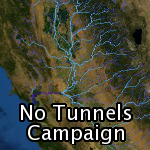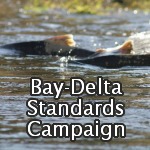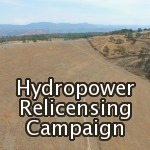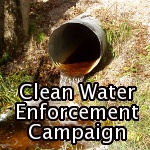CSPA filed comments with the State Water Resources Control Board on February 8, 2023 criticizing a document that claims to provide scientific reasons why small flow increases in Central Valley rivers and the Delta would be good enough to restore crashing native fish species.
The document is the “Draft Scientific Basis Report Supplement in Support of Proposed Voluntary Agreements for the Sacramento River, Delta, and Tributaries Update to the Bay-Delta Water Quality Control Plan.” It is a joint work product of three California agencies: Department of Fish and Wildlife, Department of Water Resources, and State Water Board.
The incremental flows the Draft Supplement analyzes are those conceptually proposed in a March 2022 “Voluntary Agreement Package” signed by the state and a collection of water users.
CSPA’s comments focus on several reasons the Draft Supplement and the Voluntary Agreements are misleading and wrong:
- The Draft Supplement doesn’t explain the operating rules that would make water agencies add flows on top of the flows that result from existing requirements.
- The Draft Supplement thus approximates the flows proposed by the proponents of the Voluntary Agreements, and almost certainly inflates those flows when it models them.
- The Draft Supplement doesn’t explain how often and for how long the Voluntary Agreements would increase flows past flow thresholds that science has shown are key for fish.
- The Draft Supplement ignores the role that water management in Critically Dry years and droughts plays in destroying native fish populations.
CSPA asks the State Water Board to:
- Require a complete description of the Voluntary Agreement flows and how they would work;
- analyze how those flows would actually benefit fish; and
- analyze the benefits of those flows specifically in the face of droughts and dry-year sequences.
AquAlliance and the California Water Impact Network joined in CSPA’s comments.
CSPA also signed on to the comments of Natural Resources Defense Council et al. NRDC et al. used extensive scientific citations to refute the thesis that lack of physical habitat is limiting for key native fish species and that physical habitat improvements such as in-channel and floodplain restoration can substitute for adequate flow.









